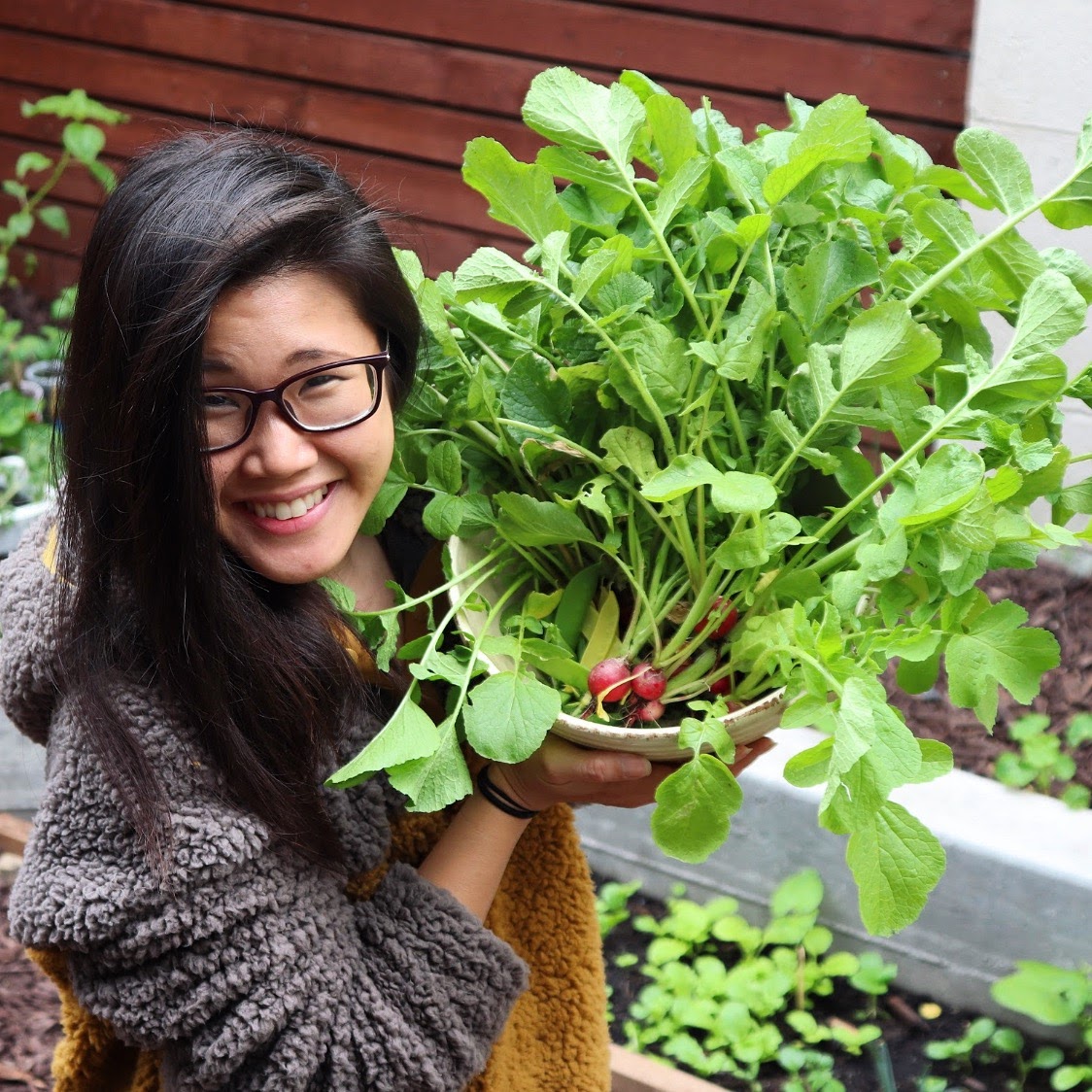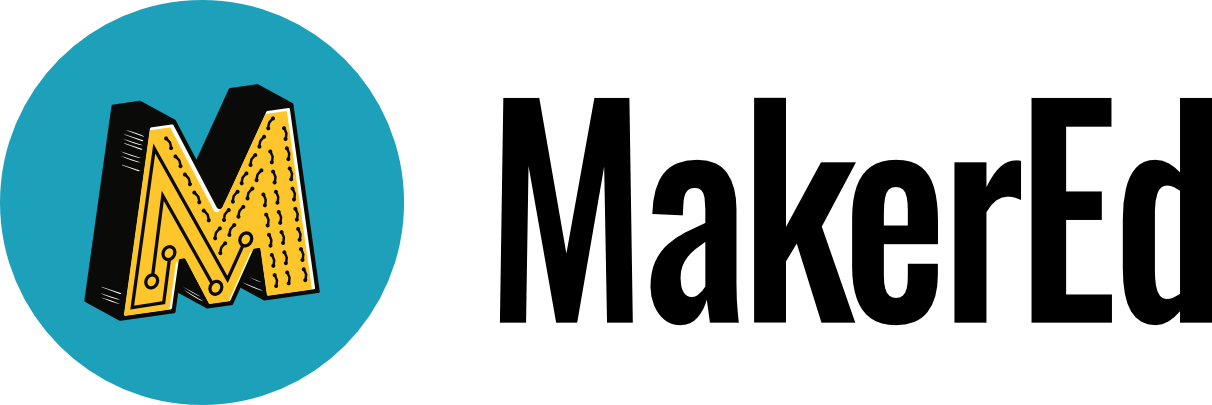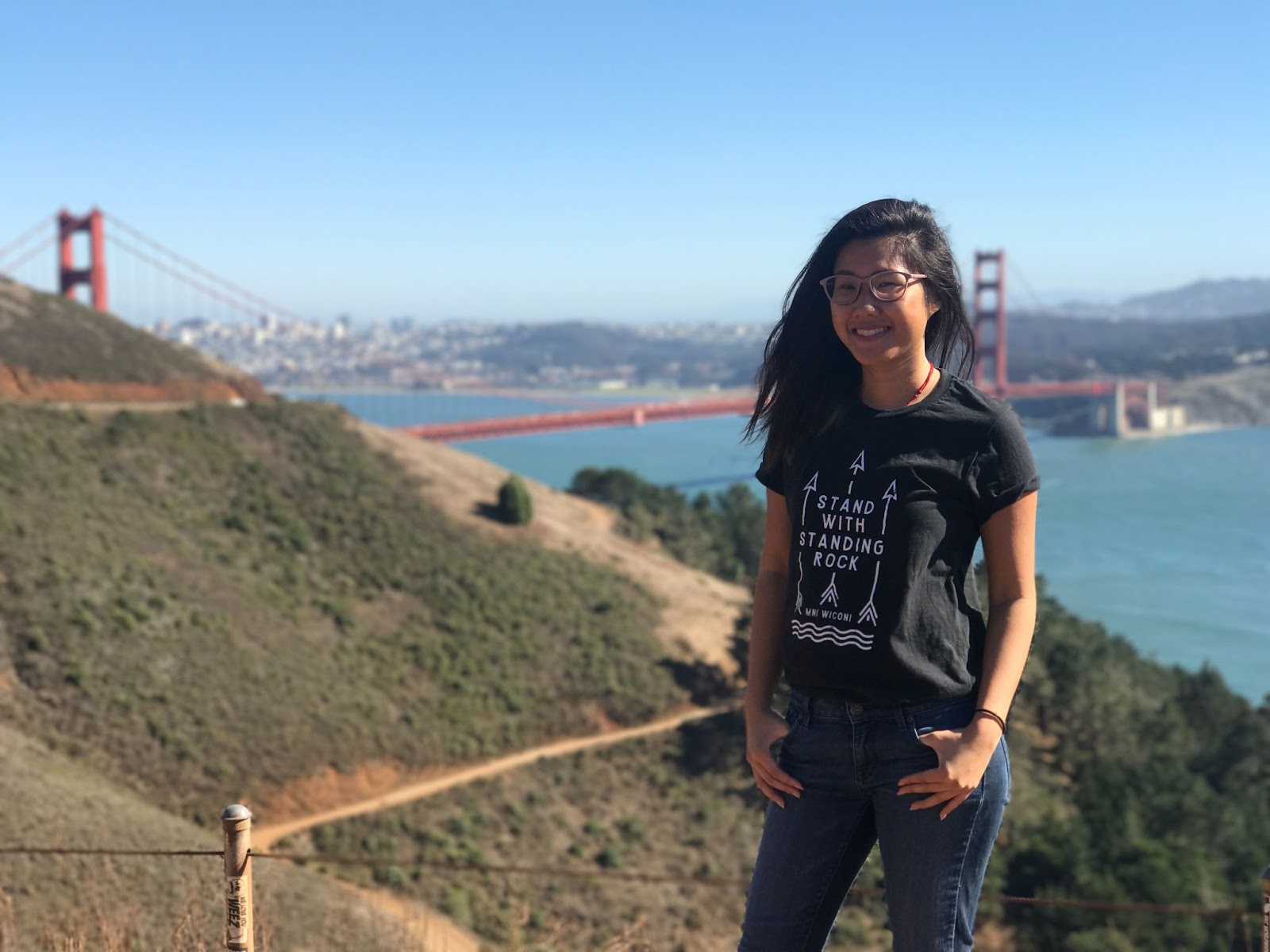Learning in the Making is a video series where we invite guest hosts of color on as equal and valued partners and collaborators, so that they can tell their stories and showcase the amazing things they are making and doing! In addition to learning with our guests through video project guides, we also interview our hosts to learn a little bit more about them.
This week, as we celebrate Learning in the Making’s first birthday, we have two incredibly special posts featuring Linda Le and Dora Medrano Ramos who started Learning in the Making last year.
In honor of a year’s worth of amazing Learning in the Making episodes we talk with LITM co-creator, Linda Le: an educator, activist, eater, and maker of memories, meaning, and things.
Tell us a bit more about yourself!
I am a freedom dreamer. I’m a daughter of Vietnamese refugees. I am an educator, friend, auntie, and sister. I have an emerging identity as a maker and grower of food, an overall person who loves eating. I love delicious foods and love to share delicious meals with others. I am a doer of things and am motivated by a call to action. I am a dog mom. A nerd. A human constantly trying to make sense of the world and my place in it. I am constantly emerging. In my wildest dreams there is no white supremacy or oppression and I could do whatever I like. In that world, I am the Vietnamese version of Anthony Bourdain and I travel the world and tell stories with people about food and culture. My name is Linda Le.
 What’s one thing about yourself that you think is important for others to know?
What’s one thing about yourself that you think is important for others to know?
I love learning things always and have been told that I can be very intense because I have big dreams for the world. I care a lot about topics I’m passionate about and believe that we can do anything. I have a deep belief that a more just world is possible and all we have to do is commit to doing it! This shows up as pushing myself and others to always center the liberation of youth, especially youth of color. It looks like pushing against institutions and structures that do not serve liberation. It looks like a lot of personal reflection and a practice of interrogation. Like many women of color, I suffer from the worst imposter syndrome because I have been given the opportunity to do incredible things with such talented people, and it is something that I work on everyday—to believe that I am my ancestors’ wildest dreams and that I am enough. And when I am overwhelmed by the world, I make: longboards, food, clothes, art, gardens, sense and so much more.
I care deeply about education as a liberatory practice. While the institution of schooling is deeply rooted in white supremacy, patriarchy, classism and oppression — education and learning have always been rooted in community and self actualization. So how do we make our learning spaces, spaces that center healing, purpose, learning, community, exploration, and joy? When I talk about social justice or more liberatory education, oftentimes people think I’m talking about just teaching students about activism and oppression — and while teaching students what they’re up against, developing their sense of identity and the tools to create social change are soooo important, building their confidence in math and understanding of science are also important to me. The path towards liberation requires us to be able to use all the different tools and learnings we have at our disposal in innovative and intentional ways, and that means reading, writing, history, science and math too!
 What excites you most about your work?
What excites you most about your work?
I am the Learning Community Manager at Maker Ed. There are many things about my work that are exciting. I think making is so magical because it gives us an opportunity to make sense of who we are and figure out how the world works. It can be a transformational tool, so when you make, you make magic! I am excited that I get to be connected to other educators who are dreaming up new possibilities for what it looks like to educate our young people, who are thinking about what it looks like for us to provide the tools they need to make their dreams a reality. I have the opportunity to be in community with educators and youth who are working every day to use making as a tool to build relationships, shift the world, make tangible things, and I get to be a part of holding that space for them. Everyday we make things and what better thing to make than a better world?
Why do you make?
I do a lot of types of making all the time. Making memories. Making meaning. Making things. It grounds me in what I can do to physically change my material conditions. Through making, I feel like I have tools to create something tangible in the world with my hands and I have a lot of belief in that. It connects me to practices that are pulling from our ancestral wisdoms and dreaming into the future. I’ve been reading a lot of Octavia Butler, especially her Parable series and I have been thinking about what it means to have a relationship to the land and connecting to our food resources, mother nature, and preparing for a world that will need those skills. I am preparing for a world where our exploitive systems disappear and more resilient systems can take place, and I am learning from people who have come before us who have done this work. Plus, making is really fun, especially food. What better way to figure things out than to make stuff.
What dreams do you have for young people?
 I want young people to be seen for their brilliance. That they get to lean into their agency and experience joy and hope. That they know it’s okay to fail and to try new things and to be fully human, and that us as adults have left the world in a better place for them, even though there is always going to be work to be done. I hope that they are inheriting a less toxic world. That is my hope for young people. I think about my students at Roses in Concrete a lot — like my girls, leading the schoolwide morning drum circle and they were dancing and chanting and living in their most joyful selves, and I want THAT. I want that for all youth.
I want young people to be seen for their brilliance. That they get to lean into their agency and experience joy and hope. That they know it’s okay to fail and to try new things and to be fully human, and that us as adults have left the world in a better place for them, even though there is always going to be work to be done. I hope that they are inheriting a less toxic world. That is my hope for young people. I think about my students at Roses in Concrete a lot — like my girls, leading the schoolwide morning drum circle and they were dancing and chanting and living in their most joyful selves, and I want THAT. I want that for all youth.
If you could share one word of advice to give to other educators, what would it be?
 I’m not sure I am someone who should be giving advice! Depending on who I am talking to, I will say it is easy or it is hard. It is easy because youth are so joyful! And being in community with them is a blessing. They are brilliant and there is so much we can learn from them if we just stopped and listened. And this work can be really hard because we are up against so much. Everyday we are attempting to break cycles of trauma and oppression and must build more just realities in their place. That is a huge and daunting task, so centering our purpose and our joy and our ability to build relationships is always integral to the work. A quote that always grounds me from The Talmud states, “Do not be daunted by the enormity of the world’s grief. Do justly now, love mercy now, walk humbly now. You are not obligated to complete the work, but neither are you free to abandon it.” And when times seem just too hard, sometimes you just need to eat something delicious, listen to your favorite song and be in community with other amazing people.
I’m not sure I am someone who should be giving advice! Depending on who I am talking to, I will say it is easy or it is hard. It is easy because youth are so joyful! And being in community with them is a blessing. They are brilliant and there is so much we can learn from them if we just stopped and listened. And this work can be really hard because we are up against so much. Everyday we are attempting to break cycles of trauma and oppression and must build more just realities in their place. That is a huge and daunting task, so centering our purpose and our joy and our ability to build relationships is always integral to the work. A quote that always grounds me from The Talmud states, “Do not be daunted by the enormity of the world’s grief. Do justly now, love mercy now, walk humbly now. You are not obligated to complete the work, but neither are you free to abandon it.” And when times seem just too hard, sometimes you just need to eat something delicious, listen to your favorite song and be in community with other amazing people.
Are there other makers and/or educators in your community whose work you’d like to promote?
The teachings and writings of Angela Davis, Assata Shakur, Yuri Kochiyama, Bettina Love, Rita Peirson and Dr. Gholdy Muhammad have been integral to my journey as an educator. I have also had the opportunity to work alongside so many amazing educators, especially women of color over the years. A few I’d like to highlight are my friends at Mycelium Youth Network who are thinking deeply about what it means for frontline communities and youth to build resilience and agency in our ongoing climate crisis. Lil Milagro Henriquez is a badass and revolutionary leader. I get to teach classes with these amazing folks and you should definitely check them out.
I’d also like to highlight Rozz Nash and The People’s Conservatory with their work with youth, especially youth of color in the arts. They do incredible work providing youth a space to learn culture and art (all different disciplines from song writing, dancing to fashion design).
Also, HOMIES Empowerment founded by Dr. Cesar Cruz and Jazmin Cruz. I’ve had the honor of teaching some of their children and being able to witness their work throughout the pandemic exemplifies what it means to be for and by the community.
And last, but not least, my amazing co-worker Dora Medrano Ramos. She is a fierce, brilliant and talented Latina educator, whose passion for abolitionist education and math education is so evident in her work. Everyone should follow her on twitter and instagram to see what she has in store for us.

